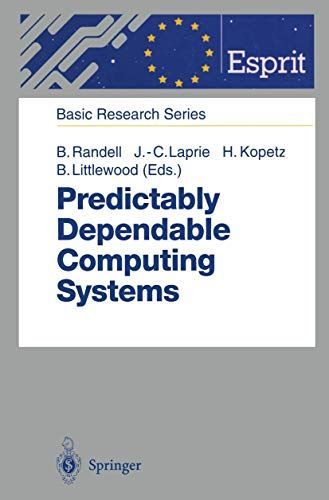
Predictably Dependable Computing Systems
Systems engineers are increasingly having to deal with the problem of how to make the process of designing and constructing dependable computing systems much more predictable and cost-effective. The great challenge about dependability is that it is a systems issue, since virtually all aspects of a computing system, and of the means by which it was specified, designed and constructed, can affect the system's overall dependability. This book explores links, and gaps, between topics that are often investigated separately, but whose interactions can be of considerable relevance to issues of overall system dependability. It contains material on all four of the main topics that are crucial to the successful production of dependable computing systems namely: fault prevention, fault tolerance, fault removal, and fault forecasting. Particular emphasis is placed on the problems of real-time and distributed computing systems. This book provides up to date information about the latest research on these topics from a team made up of many of Europe's leading researchers - it is based on the work of two successive major ESPRIT Basic Research Projects on Predictably Dependable Computing Systems. These projects lasted over six years in total, and each involved approximately forty researchers at any one time. The book contains a carefully edited selection from among the over two hundred published papers produced by the PDCS projects and provides a good general overview of the work of the two projects, as well as coverage of most of the projects' major research achievements.